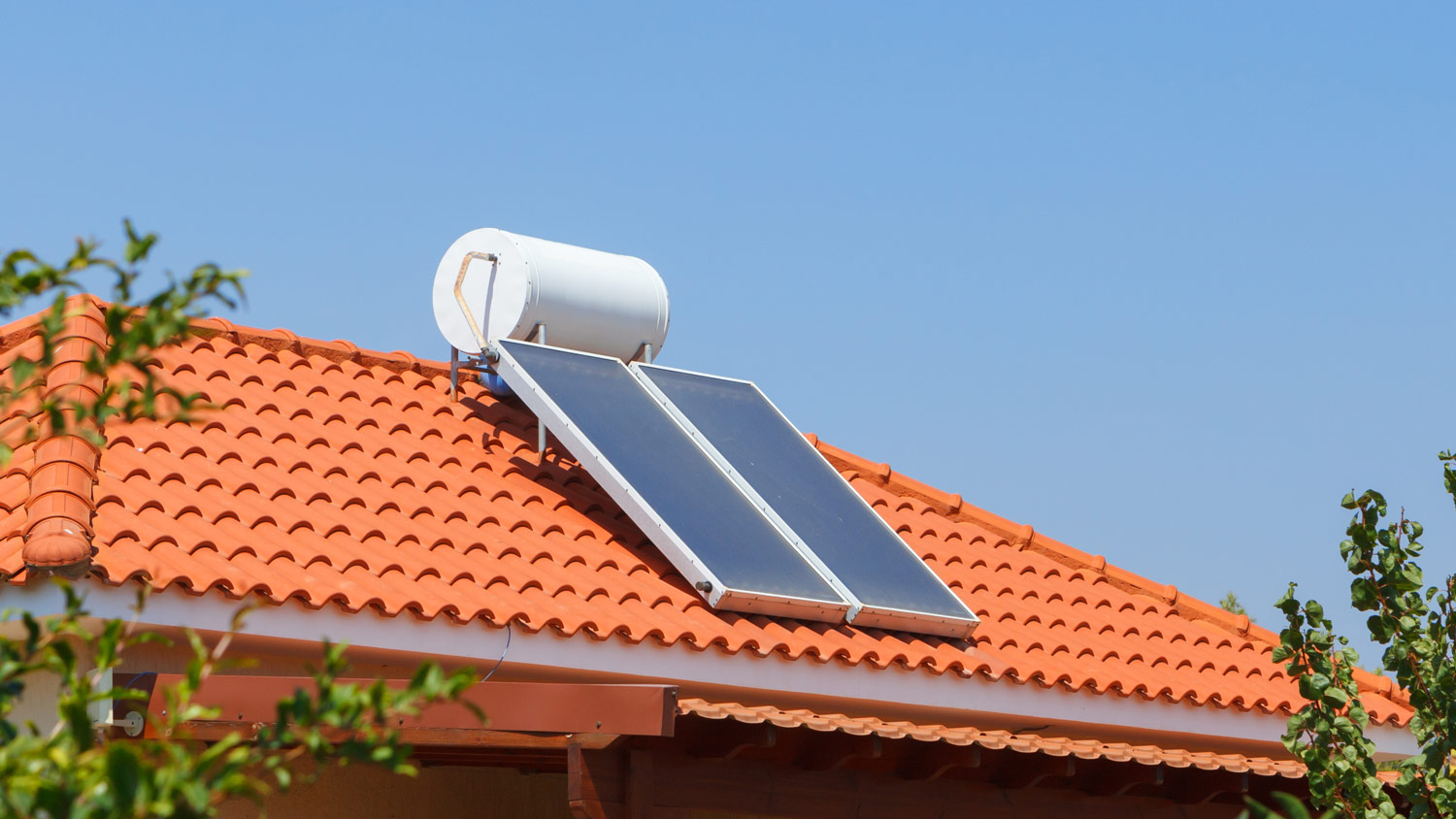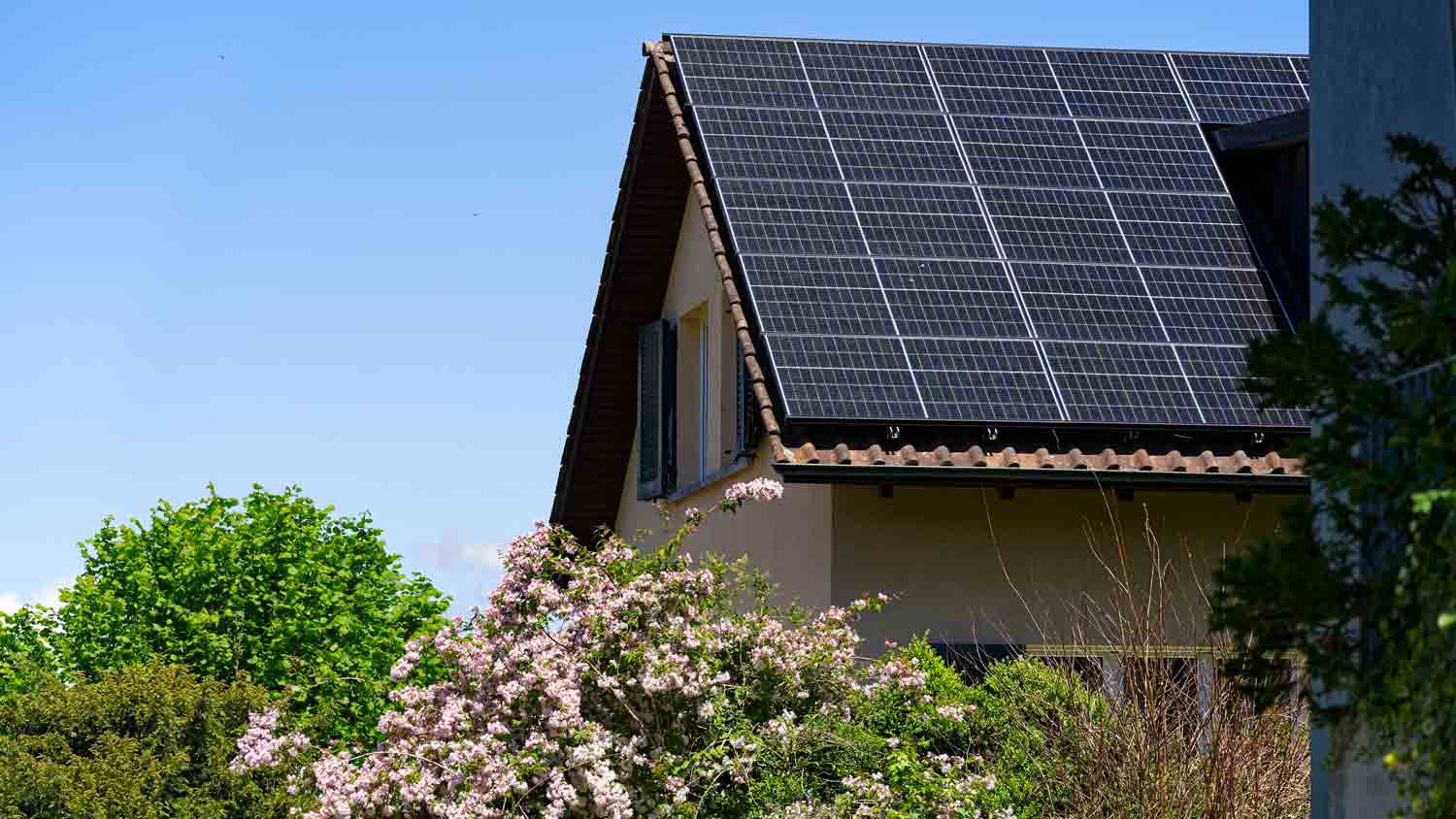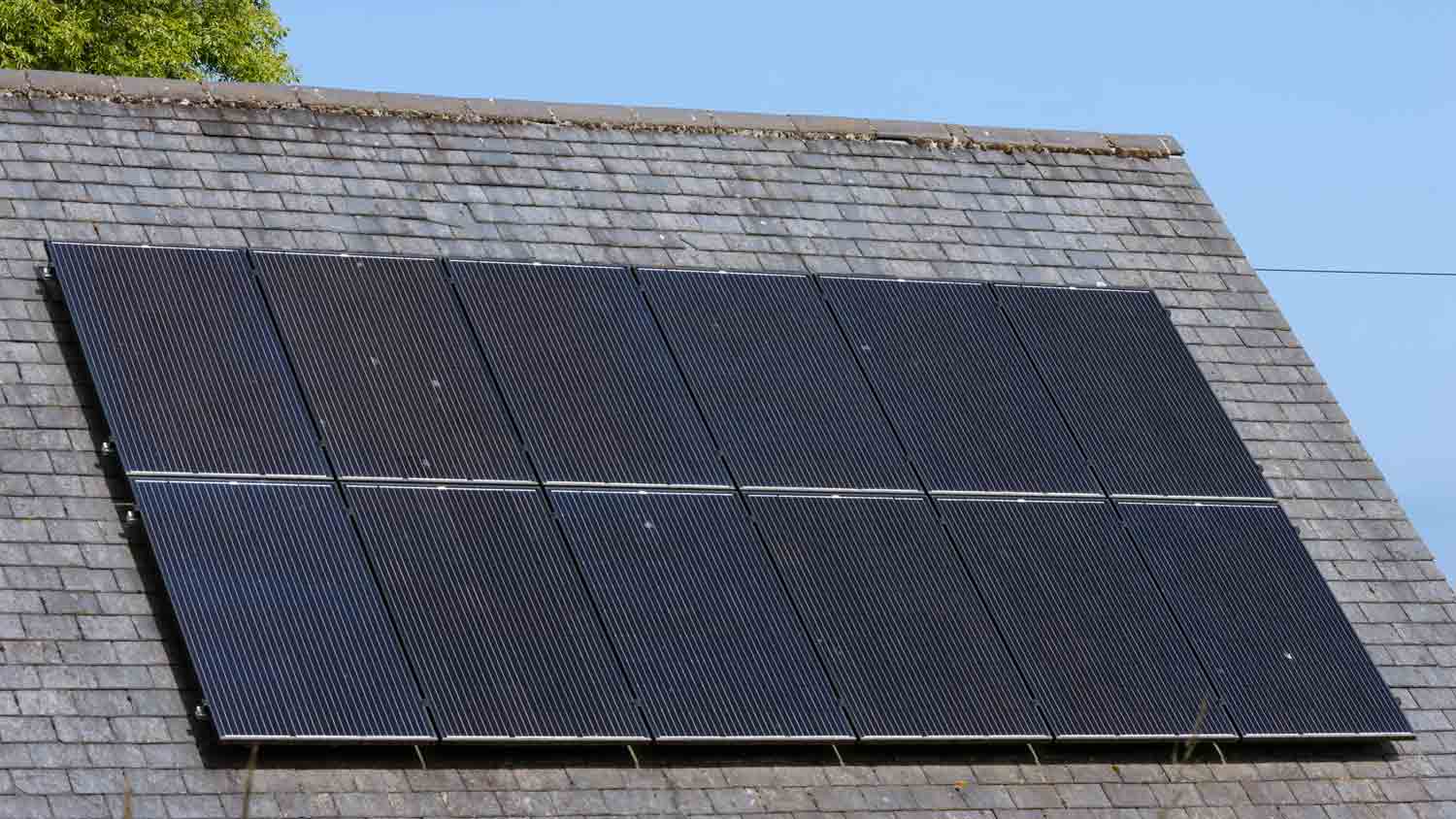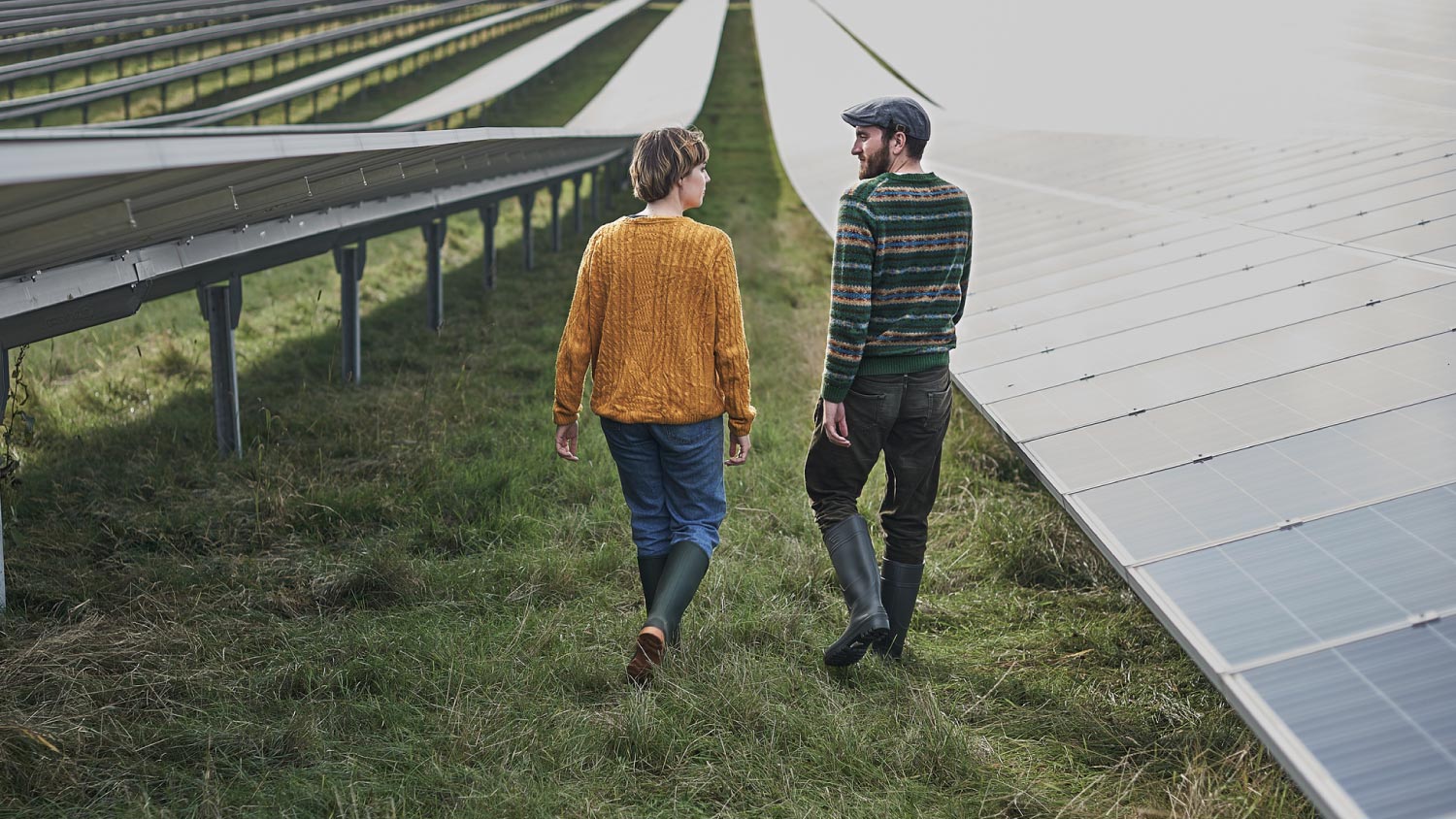
Get a clear estimate for solar water heater repair cost. Learn what impacts pricing and how to budget for your solar water heater repair.
Help your solar panels enjoy their moment in the sun


The best roof pitch for solar panels depends on your home’s latitude, roof slope, and weather patterns.
Experts recommend setting panel angles equal to your home’s latitude.
In the Northern Hemisphere, south-facing solar panels give you maximum sunlight exposure.
Adjust panel angles 10 to 15 degrees seasonally to boost efficiency year-round.
Hire a solar panel installer to assess shading, roof pitch, and ideal placement for peak energy output.
Adding solar panels to your home is a great way to save money on electricity and make your home more environmentally friendly. Before installing any solar panels, you need to think critically about where to place them to get the most bang for your buck. Learn how to find the best roof pitch for solar panels so you can make the most of those sunny rays.
If only installing solar panels were as simple as choosing the spot where they would look the best. But you must be strategic about where you place solar panels— and your aesthetic preferences shouldn’t come into play.
Solar panel orientation is critical because it determines the amount of sunlight that hits the panels throughout the day. The more sunlight a panel receives, the more energy it can generate—which will help you save the most money on energy bills.
The best way for your solar panels to increase home value (and to balance out solar panel installation costs) is to install them effectively. Here’s a closer look at why finding the best roof pitch for solar panels matters.
Most homeowners share a primary goal when installing solar panels—to capture as much sunlight as possible. In the Northern Hemisphere, panels should face south because the sun is always in the southern part of the sky. A south-facing orientation allows panels to capture the most sunlight throughout the day. On the flip side, in the Southern Hemisphere, panels should face north.
Keep in mind that the sun’s position in the sky changes with the seasons. In the summer, the sun is higher in the sky, while in the winter, it’s lower. This change affects the angle at which sunlight strikes your solar panels. Choosing a position with seasonal shifts in mind can help maximize energy production throughout the year.
If your solar panels aren’t installed at the optimal angle, you can lose a lot of potential energy. For example, if panels are too flat, they might not capture enough sunlight during the winter months when the sun is lower in the sky. On the other hand, if they are too steep, they may not be as effective during the summer. Striking the right balance is tricky, but doable.

To find the best roof pitch for solar panels, you need to consider the following factors.
Where your home is located plays a significant role in determining the optimal angle for your solar panels. The closer you are to the equator, the less steep your panels need to be. This is because the sun is higher in the sky year-round. The farther you are from the equator, the steeper the angle should be to maximize solar exposure.
The pitch of your roof is the slope or steepness of the roof surface. A steeper roof might naturally have a more suitable angle for solar panels, depending on your geographic location. However, if the pitch is too steep or too flat, adjustments may be necessary to achieve the optimal angle for your specific situation.
Areas that receive heavy snowfall or frequent rain might require different panel angles to optimize performance. A steeper angle can help prevent snow accumulation on the panels, while a flatter angle might be more suitable in regions with high winds. If you are building a roof before adding panels, the weather also plays a role in the materials you will use during the building process. Make sure you find the best roofing materials for solar panels for your home.
Not all solar panels are created equal. Some are designed to capture light more efficiently at various angles, while others might perform better when positioned more directly toward the sun.
Trees, buildings, and other structures that cast shadows on your roof can significantly impact solar panel performance. If your roof is shaded for part of the day, you may need to adjust the angle of your panels to capture the maximum amount of sunlight during peak hours.

Hiring a solar panel installer to help you plan your placement is ideal, but if you’re in the early stages of planning, these are some tips to keep in mind that can help you get an idea of what the best angle is for your home.
Assess your roof’s pitch: Start by measuring your roof's pitch. This is typically expressed as a ratio of vertical rise to horizontal run (for example, 4/12, meaning four inches of rise for every 12 inches of run). Knowing your roof pitch will help you achieve the ideal angle.
Calculate the optimal angle: A common rule of thumb is that the optimal angle for solar panels is equal to your latitude. For instance, if you live at a latitude of 35 degrees, your solar panels should ideally be installed at a 35-degree angle. This is just a general guideline. You may need to make adjustments based on other factors like roof pitch and local weather conditions.
Consider seasonal adjustments: The angle you choose is not set in stone. If you want to maximize solar production year-round, you might consider adjusting your panel angle seasonally. In winter, you can increase the angle by 10 to 15 degrees from your latitude to better capture the low sun. In summer, decrease the angle by 10 to 15 degrees to optimize for the higher sun position.
Use solar panel angle calculators: Many online tools and calculators can help you determine the best angle for your solar panels based on your specific location and roof characteristics. These calculators consider various factors unique to your home, such as your geographic location, roof pitch, and shading.
Consult with a professional: Solar installers and professionals have the experience and knowledge to recommend the best angle for your solar panels. You can hire a solar panel installer near you to perform a site assessment, taking into account all relevant factors, and provide you with a tailored solution for maximum energy efficiency. If you’re wondering—do solar panels damage roofs—hiring a professional is also a great way to ease your worries about potential issues. Make sure you ask the solar company questions you have before hiring.
Monitor and adjust: After your solar panels are installed, monitor their performance over time. Many modern solar systems come with monitoring software that allows you to track energy production and identify any potential issues. If you notice a drop in performance, consider adjusting the angle of your panels or consult with a professional to see if they can optimize your setup.
From average costs to expert advice, get all the answers you need to get your job done.

Get a clear estimate for solar water heater repair cost. Learn what impacts pricing and how to budget for your solar water heater repair.

Get a detailed estimate of solar farm costs. Learn about average prices, key cost factors, and ways to save when planning your solar farm project.

Solar battery costs depend on the size of your system, labor, and capacity. Learn how much you could pay for batteries for home solar systems.

A solar panel system is a great way to lower energy bills, but it can be expensive to install. Here's what to know about solar panel finance options.

Solar farms can be profitable, but knowing exactly how to get the most out of your solar farm’s ROI is key to its success. Keep reading to learn more.

Thinking about switching to solar? Consider the pros and cons of solar energy to decide if it’s right for you. We shine a light on the upsides and downsides.